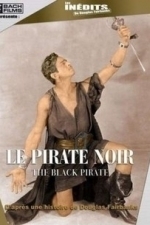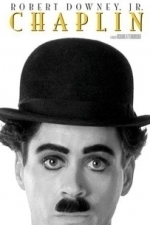Search
Search results
RəX Regent (349 KP) rated The Black Pirate (1926) in Movies
Feb 18, 2019
Two-tone Techncolor milestone
Two Tone Technicolor in all its glory! This is it. The first widely distributed Technicolor movie back before we even had sound. This was hardly the first foray into colour, in fact colour almost goes as far back as film itself, as does sound, but it was not until the mid-1920’s that breakthroughs in both mediums would bring them into mainstream.
Sound would take first, with Technicolor taking just a little longer, mainly due to the technical issues of using it both in front and behind the camera. But as time went on, these issues were gradually dealt with with the rest is cinema history.
So, having gotten the technical bit out of the way, on to the Douglas Fairbanks Jr. blockbuster. And that is precisely want this was. A by-the-numbers acrobatic action movie by the undisputed star of the day, Fairbanks.
The plot follows a Duke (Fairbanks) whose ship is attacked and destroyed by a Pirates. He is the soul survivor and vows revenge. He soon finds himself in the company of the very pirates he is looking for and infiltrates their crew by being the best god-damn pirate there ever was!
He meets a princess (Billie Dove) and saves the day, gets the girl and the evil pirates are dispatched. All, amidst lots of colourful blood, to emphasise the Technicolor I suppose and slides down a few sails with his dagger along the way.
The performances are typical for a Hollywoodland movie of the day, but besides the outstanding physicality of Douglas, I would not say that there was anything particularly noteworthy about the acting, let alone the production on the whole. Having said that, the tone and cliche’s which this film has brought to the genre as whole are legendary and there is that foray into colour of course.
This were it all began folks…
The DVD
Unfortunately my copy was just the cheap R-0 version, whcih was clearly (ironically) taken from a old VHS recording. The colour is vivid but wrong. Greens have replaced blacks and the overall print quality was poor but watchable. I have seen bit s of the KINO HD Blu-ray edition and this looks great.
It also has the original score by Mortimer Wilson, something whcih this bargain basement DVD does not. The music supplied is okay; a mix of classical pieces on a loop but none this is cued and rarely suits the scenes let alone the action on screen. Further proof that there never was such a thing as silent cinema, just no synchronised sound.
For the real experience, get the Blu-ray, though it is very expensive at the moment, but if you just want to see what all the fuss is about, this DVD is quite watchable, at least as an entry version.
Me, I am after the upgrade!
Sound would take first, with Technicolor taking just a little longer, mainly due to the technical issues of using it both in front and behind the camera. But as time went on, these issues were gradually dealt with with the rest is cinema history.
So, having gotten the technical bit out of the way, on to the Douglas Fairbanks Jr. blockbuster. And that is precisely want this was. A by-the-numbers acrobatic action movie by the undisputed star of the day, Fairbanks.
The plot follows a Duke (Fairbanks) whose ship is attacked and destroyed by a Pirates. He is the soul survivor and vows revenge. He soon finds himself in the company of the very pirates he is looking for and infiltrates their crew by being the best god-damn pirate there ever was!
He meets a princess (Billie Dove) and saves the day, gets the girl and the evil pirates are dispatched. All, amidst lots of colourful blood, to emphasise the Technicolor I suppose and slides down a few sails with his dagger along the way.
The performances are typical for a Hollywoodland movie of the day, but besides the outstanding physicality of Douglas, I would not say that there was anything particularly noteworthy about the acting, let alone the production on the whole. Having said that, the tone and cliche’s which this film has brought to the genre as whole are legendary and there is that foray into colour of course.
This were it all began folks…
The DVD
Unfortunately my copy was just the cheap R-0 version, whcih was clearly (ironically) taken from a old VHS recording. The colour is vivid but wrong. Greens have replaced blacks and the overall print quality was poor but watchable. I have seen bit s of the KINO HD Blu-ray edition and this looks great.
It also has the original score by Mortimer Wilson, something whcih this bargain basement DVD does not. The music supplied is okay; a mix of classical pieces on a loop but none this is cued and rarely suits the scenes let alone the action on screen. Further proof that there never was such a thing as silent cinema, just no synchronised sound.
For the real experience, get the Blu-ray, though it is very expensive at the moment, but if you just want to see what all the fuss is about, this DVD is quite watchable, at least as an entry version.
Me, I am after the upgrade!
Felipe (17 KP) rated Chaplin (1992) in Movies
Dec 7, 2020
A modern tragedy meant to be one of the greats
Contains spoilers, click to show
Richard Attenborough delivers another masterpiece of cinematic biography and is a worthy successor to Ghandi. The structure of the film is told as a flashback while Charlie Chaplin is writing his autobiography with a fictional editor that does not exist. We see for the first time the flaws of who Chaplin is as a person and we see him confront his past in a way that is painful not unlike how it is painful when we relive moments in our lives we would rather choose to forget. However, the success of the film is how it strips the illusion of who Chaplin was and presents to us a person who is tragically flawed but who is unbale to appreciate his own genius. An example is when Chaplin's version of the invention of the Tramp is seen for what he imagined it to be an idealized moment in which the character is calling to him except for what it really was, We see the reality of the movies during this time; a hectic spur of the moment improvised invention drawn from real life. Yet we see Chaplin as the midwife to this new artform the movies and we see him develop it for what it is, the highest expression of art that stirs our imagination and makes us believe anything is possible. We even cry during Chaplin's moments of personal tragedy; the insanity and loss of his mother; repeated failed marriages; the death of his best friend, Douglas Fairbanks and finally his tragic and painful exile from America the only place he knew as home all taking place in the backdrop of the invention and evolution of cinema. However, I feel that in the end Chaplin is the one that comes out triumphant. In the last moments of the movie we see how Chaplin despairs that he feels that he has been forgotten and made irrelevant by the changing times; he feels that the weight of not only his age but the weight of the world on his shoulders and yet we see that everything he believes himself to be is completely wrong when Hollywood bestows on him the greatest honor which is not only the special Oscar but also a standing ovation. His final triumph is to be made a knight by Queen Elizabeth II, we are truly made to see that although flawed he is triumphant in the end.

